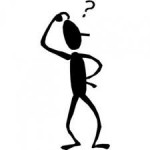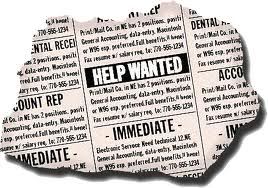Hiring Pharmacists: Is Experienced or Inexperienced Better?
Should you hire an inexperienced or experienced pharmacist?

Sounds like an obvious question, doesn’t it?
The answer?
It’s simple but not always obvious.
Some pharmacy hiring managers love to hire inexperienced pharmacists with the right attitude and train them to their pharmacy/company’s ways of doing things & groom them. Others prefer more experienced pharmacists, so management can save time with training. *Note: in this job market, the definition of inexperienced that I’m referring to is a few years of experience or less.
Here are the 3 most common mistakes of hiring based on experience or inexperience. You may identify with one of them and gain a few insights, plus save yourself headaches when you hire:
Mistake #1: Hiring inexperienced people with the right attitude & fit, but not having the time/energy to set them up to meet or exceed your expectations. You tell yo urself you will create a comprehensive training program, but you really don’t have time for this kind of thing. It gets put on the backburner because of all the other things you HAVE to do.
urself you will create a comprehensive training program, but you really don’t have time for this kind of thing. It gets put on the backburner because of all the other things you HAVE to do.
Before you know it, your new hire is either frustrated and not performing to the way you’d like, or you talk yourself into not needing to create a comprehensive training program. You tell yourself that the first few week or two of training should’ve been enough.
Even more frustrating, your new hire decides to leave after a short period of time, even though the pharmacist seemed like he/she wanted to stay a long time with you.

Pharmacist Slacking Off
Mistake #2: Hiring primarily based on experience, and getting excited about someone’s achievements but not being careful with the rest of your screening process (including not following your intuition). You tell yourself that you don’t have to worry as much about assessing their fit, because this person has worked many years at another pharmacy successfully. Surely they’ll catch on even though they start out performing below your expectation. You let your guard down and skip over parts of your typical screening process.
Caution (Hiring Alert!): Working many years at another pharmacy and doing well there doesn’t automatically translate into doing well in your pharmacy’s culture and expectations. Your potential hire’s previous goals aligned with that employers’, but does his/her current goal align with your pharmacy’s?
Mistake #3: Hiring and allowing someone to continue at your organization when you realize they consume too much of your time (not in a beneficial way), or may be toxic to your staff. You think it will be too much trouble to go out there & look for a new hire again. You stay in this bad marriage because you committed, right?* Now, in most cases, I’m all about commitment in a marriage & staying until things get worked out, but having someone on your staff is not completely like a marriage (although there are similarities).
You can have patience & compassion to an extent about your new hire, but if it doesn’t work out, the decision to let him/her go will prevent that person’s ability to affect other staff members’ work. In fact, hanging on to someone who’s not right for your pharmacy can prevent others from performing their best.You can have a different relationship with your hire who didn’t work out, ie: an acquaintance, but you don’t need to have them consume your time & emotional energy as a staff member whom your pharmacy’s paying for.
What is the solution to these potential headaches?
If you hire someone inexperienced, take the time to assess how much time and energy it will take of yours and your staffs’ to get your new hire up to speed. Beyond that, how much time and resources will it take for them to excel? When you hire someone inexperienced, hiring someone with the right attitude and “fit” becomes even more important. If you end up finding out after they start & it doesn’t look like it’s going to work out, you’ve just spent a tremendous amount of your energy getting them on board. Take care in assessing the “fit” and attitude of your inexperienced hire.
If you hire someone experienced, make sure you have someone who has the attitude and “fit” of your pharmacy organization, not just on a short-term basis but a long-term basis.
These common hiring mistakes above can not only happen when hiring a pharmacist for a full-time position, but especially when hiring someone to fulfill a temporary need. Most of the time when you are pressed for a last-minute need, you really don’t have time to ie, train someone with little experience, or deal with headaches of someone who is not the right fit.
This is where having a relationship with a recruiting company that specializes in the area of pharmacists you’re looking for and who knows you well can really give you value that no one else can. There is nothing better to be said for fit, experience, & the right attitude. Sometimes not having the right fit nailed down can really cost you.
When you have a secret weapon who knows you, your pharmacy’s vision, and more about your team so they are sizing up candidates based on much more than experience, the result of finding the right “fit” can save you headaches, time, and beaucoup bucks.
Add that with getting access to the most experienced pharmacists in the area of specialty your pharmacy’s looking to hire, and you have an edge to save yourself a lot of hassle & long-term hiring costs that other pharmacy hiring managers don’t have.
Emotional Hiring Baggage
Take the Poll: Do you think it’s better to strengthen your strengths, or strengthen your weaknesses?
*Scroll down to the bottom to see what experts say about strengthening your strengths vs. strengthening your weaknesses. Find out why it matters to the success of your pharmacy after you hire.*
Now…read about a common mistake that pharmacy directors make when hiring a pharmacist.
Hiring based on emotions or your rapport with someone is a common mistake hiring managers make. You go through your screening process, but end up hiring someone you like rather than the most suitable person for the role. It is important to like whom you work with, but taking emotion out of the picture will allow you to make sound final decisions. Go through a set system that takes emotion out of the decision. Emotion can be triggered by your need to hire someone right away, or your hoping that a candidate you like will work out because you like him/her, and you hire them despite red flags showing up.
Try to involve other people and your pharmacy staff in the decision-making process at some point. They may be able to identify your blind spots preventing you from seeing the whole picture of the candidate. Use a set system and include your intuition to help you make a final decision.
One overlooked mistake is hiring someone who <span id=”more-1598″></span>is similar to you in the way they process the world. The problem is that you may actually be looking for them to fulfill a role that does not require the similar type of excellent that your role does.
Many times, the way someone processes the world is tied to the type of role they are well suited in. For example, someone who is introverted, structured & organized, systematic, analytical, detail-oriented will be more likely to be in the role of a bookkeeper than an entertainer (who may be more extraverted, sociable, and right-brained).
Pharmacists typically have a strong analytical and detail-oriented side to them, which makes them more prone to being accurate and perhaps enjoy reading journal articles. But they may not like counseling patients because they are an introvert. Even though they may appear sociable, their true preference is being an introvert. Others may thrive on counseling patients.
Each person has traits that allow them to be strong in other areas, whether they are traits that allow them to be a strong leader, the ability to make others feel comfortable and welcoming, or being a supportive type of person who doesn’t mind being conforming and likes to avoid confrontation.
Although some pharmacists can accomplish the analytical side of things, they would thrive even more if placed in a role (or add-on to their current role) that allows their creativity to come through, such as creating ways to improve patient satisfaction. Or engaging in a role that requires thinking outside the box. Maybe they would be better at re-designing pharmacy workflow to its optimal efficiency rather than analyzing journal articles, reviewing patient records, or making sure everything is entered in the computer exactly as requested.
When you hire pharmacists without conducting behavioral assessments, chances are that you are not utilizing their best talent, because you haven’t taken the time to truly understand their strengths and how they process the world.
Identify your team’s strengths and strengthen their strengths. It is more effective than identifying weaknesses and improving on their weaknesses. That is a concept explored in “Strengths Finder” by Tom Rath. The Strengths Finder assessment is something you can incorporate in your hiring process to understand someone’s true strengths, and identify ways to magnify those strengths.
Other assessment tools can help with determining work style preferences. Stay tuned–in a future article, you will find out how to move someone a seemingly low achiever to a high level of performance.
The time to start assessing and understanding your pharmacy staff’s strengths is during the hiring process, even before they start.
Can’t Find the Right Pharmacist Hire? Check Your Job Description
 One of the biggest mistakes hiring managers & pharmacy directors make during the hiring process is writing a vague or incomplete job description. From the thousands of job descriptions I have seen, many are vague. Some job descriptions don’t even convey clearly whether it’s an inpatient or outpatient position. As a result, an HR/pharmacy department is flooded with a large percentage of unqualified candidates that waste their time.
One of the biggest mistakes hiring managers & pharmacy directors make during the hiring process is writing a vague or incomplete job description. From the thousands of job descriptions I have seen, many are vague. Some job descriptions don’t even convey clearly whether it’s an inpatient or outpatient position. As a result, an HR/pharmacy department is flooded with a large percentage of unqualified candidates that waste their time.
A well-written job description is key to attracting the right pharmacist candidates to you. This is a potential candidate’s first impression of what it is like to work at your facility.
Start with writing down values that are important to your pharmacy & facility. For example, “Strong work ethics” or “professional growth”. You will incorporate these values within the job description. Next, write down the purpose of the role. This helps both you get grounded about what to write in the job description, and conveys to a potential applicant how he/she would fit in to the rest of the organization.
 As you are writing this, set the intention to paint a strong picture of what it is like to work at your pharmacy. If you keep this in mind as you write the job description, it will be more powerful than a job description that just follows a typical job description format.
As you are writing this, set the intention to paint a strong picture of what it is like to work at your pharmacy. If you keep this in mind as you write the job description, it will be more powerful than a job description that just follows a typical job description format.
Next, start with the main responsibilities and key aspects that are important in the role. Main responsibilities could include reviewing patient records and labs, preparing IVs, and counseling patients. Key aspects could include teamwork, problem-solving skills, clinical skills, computer skills, and the attitude you want your pharmacist to have.
The size and pace of your pharmacy can be acknowledged. For example, you could mention that the pharmacy current fills on average 800-1000 Rxs/day. Mention any pharmacy-run clinical programs unique to your facility or on-the-job training unique to your facility. Be clear about the schedule expectations.
Describe the technical ability of the pharmacist you are looking for. Example: the ability to process prescriptions with the support of Script Pro Central. Experience with CPOE, McKesson, and bedside coding.
The clearer you are about your ideal candidate not just from the perspective of responsibilities, the more likely you will attract the right pharmacist. You may even wish to incorporate a separate paragraph in your job description describing your ideal candidate. The ideal candidate’s attitude, skills, experience level can be summarized in this paragraph titled “Ideal Pharmacist for this Position”. Phrases like the following can be used: “Self starter”, “Positive attitude”, “being a part of a high-functioning fast-paced environment”, or “handles miscommunication in a professional and direct manner.”
An effective job description also takes a paragraph to express what is unique about the facility. For example, if your pharmacy has been recognized by the hospital for an award, this is attractive to a potential new hire because it shows that the pharmacy focuses on excellence. Highlight strong management support and leadership, if you have it. Pharmacists like to work under a well-supported management.
A paragraph about this may look like “We are a facility recognized as one of the top 100 hospitals to work in the US. Services include….”
 Run your job description by the person in the current role or by someone else in your pharmacy. Ask them if it gives them a strong sense of what the responsibilities entail.
Run your job description by the person in the current role or by someone else in your pharmacy. Ask them if it gives them a strong sense of what the responsibilities entail.
You don’t need to reinvent the wheel. You can share job description ideas among other facilities that have similar roles, however, definitely add in the essence of what makes working at your facility unique.
When you work with a recruiting firm to find the right pharmacist to hire, use the recruiter to take your job description to life. An independent recruiter can paint a picture of what it’s like to work there to a candidate and serves as a walking & talking ambassador for your facility. Use this to your advantage. Although a recruiter can save you time by networking with pharmacists who fit your criteria, assessing a candidate’s honest answers about what he/she really wants in a job, and determining whether the position is a true fit, the important step of creating a well-written job description is not to be skipped. It can be highly supportive to a walking & talking ambassador for your facility. It will lead to finding the right pharmacist for your facility.
4 Secret Ways to Attract Good Pharmacists to Your Pharmacy (Part II)
It’s easier to attract a pharmacist who has worked at your pharmacy before as a pharmacy student or resident. You also have the benefit of having experienced the pharmacist’s capability and fit for the position.
SOLUTION: Attract pharmacists by developing an externship program or residency program, if you don’t have one already. Stay in touch with them–they may become your future hires.
4 Secret Ways to Attract Good Pharmacists to Your Pharmacy (Part I)
Don’t you wish that you could always be fully staffed and never have to worry about hiring pharmacists or getting pharmacist coverage when you need it?
There are more pharmacist candidates to choose from in this competitive pharmacist job market, but pharmacies are still telling me that it is taking time to find the right candidate. There are more candidates to sift through. In fact, many of you are holding out to hire just the right pharmacist because you want to make sure he/she is the right investment.
The scoop #1: Pharmacists are discouraged by the lack of fulfillment in their job.
SOLUTION: The more you are able to offer in your position a good mix between clinical/staff, the ability to be involved in non-routine work and offer a sense of contribution beyond simply dispensing, the easier time you will have attracting a good pharmacist.
Take an interest not only in the pharmacist’s professional & career development, but also offer the opportunity for personal growth. By doing so, you expand your pharmacist’s capacity to handle different situations and step into being the best pharmacist possible for your patients. This can involve teleseminar training, live event training, books, CDs on areas outside of pharmacy.
Share with your potential pharmacist hires how your company is different with encouraging personal growth & fulfillment in their jobs. This alone will make your company more attractive than others.
Comment below on this idea & what else has worked for your pharmacy to attract good pharmacists. Stay tuned in future blog posts for 3 other secret ways to attract good pharmacists for your pharmacy.